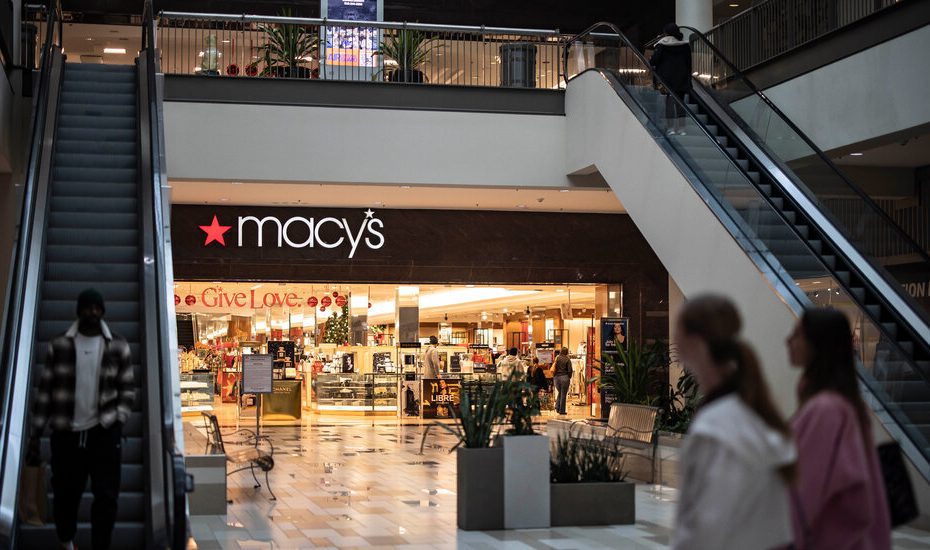Macy's, the largest department store in the United States, saw sales somewhat improved in all stores during the holidays, but like other retailers it warned of a potentially rocky year.
Macy's said similar turnover in stores that owned it, fell by 1.1 percent in his tax fourth quarter, which ended on 1 February 1. In all Macy, including Bloomingdale's and BlueMercury, as well as the approved business and online marketplace, the sale rose 0.2 percent, the best result.
Macy's went into the holidays with serious challenges, including more cost -conscious consumers, weakening profitability and a bizarre accounting error. It is located in the middle of a turnaround plan that includes closing under -performance locations and improves the remaining stores with more staff and better merchandise. It has so far closed around 66 of 150 planned stores.
While Macy sees signs of optimism, the prediction that the Wall Street offered that it expects to deliver less income than the last tax year, partly due to the store closures. The retailer said that the net turnover will be $ 21 to $ 21.4 billion, a decrease of $ 22.3 billion in the past year. It is expected that comparable sales will fall to 2 percent.
David Swartz, a senior equity analyst at Morningstar, warned that investors and analysts like him “should see more” to be convinced that the department store's strategy to reverse his fortune really works.
“If you own hundreds of stores, some of them will be really good and some of them in the middle and some of them are terrible,” he said, adding that “the fact that the better stores perform reasonably well, you don't really tell much about the health of the entire company, unfortunately.”
But there are factors that have to navigate Macy's and other retailers in the coming year that fall outside their control.
Rates recently imposed by President Trump have been called for retailers in reporting their latest financial data. Those rates, which came into effect on Tuesday, place a tax of 25 percent on most Mexican and Canadian imports to the United States and another 10 percent on Chinese goods.
Target noted on Tuesday that rates were a factor that could ask customers to keep expenses. Corie Barry, the Chief Executive of Best Buy, said that the price increases for American consumers were “very likely” because they expect that suppliers “pass on a number of tariff costs to retailers.”
Despite the warning for the challenges that rates could yield, including extra costs, some retailers tried to put a brave face on it, and noted that they had already worked to reduce their possible exposure to rates.
Steve Miller, the most important financial director of Warby Parker, said on 27 February that the company had diversified its suppliers over the past five years to reduce the tariff exposure, and noticed that China represents 20 percent of the costs of goods.
“We have several levers to manage a dynamic tariff environment,” he said.
TJX, the owner of TJ Maxx and Marshalls, noted on 26 February that it expects a “small negative impact” from rates in the first half of the year, but John Klinger, the most important financial executive of the retailer, said that the company remains “trusting that we can navigate through the current Chinese tariff environment on our future purchases.”
Some brands have also recognized the uncertainty created by Mr Trump's rates, who can dampen business activities.
John M. Vandemore, the Chief Financial Officer of Sketchers, made jokes on Tuesday with investors that “in between when I left my hotel room and came down, I had to check and ensure that there was no new Tari ffs” before I asked their questions. Nevertheless, he noted that the shoe company had a “pretty solid path” to absorb the costs.
Mr. Swartz, the Morningstar analyst, said that although retailers are concerned about rates, it is not necessarily a new threat.
“Some of the rates for China were never removed when Biden was president,” he said, gave companies time to adjust.
If investors believed that the last rates round were the start of a serious trade war that will last for years, “you would see shares that are crushed everywhere,” he said.
Eventually he added: “It makes no sense for the Lord Trump” to actually cause a recession that people would make very angry with him. “

